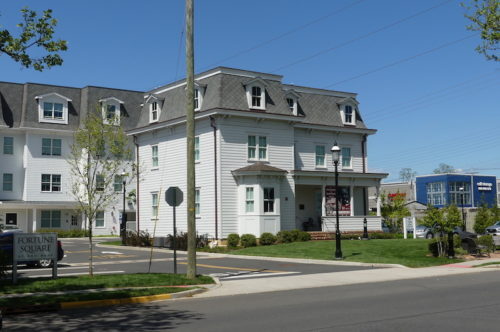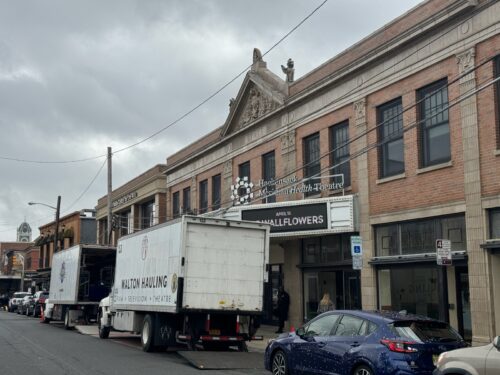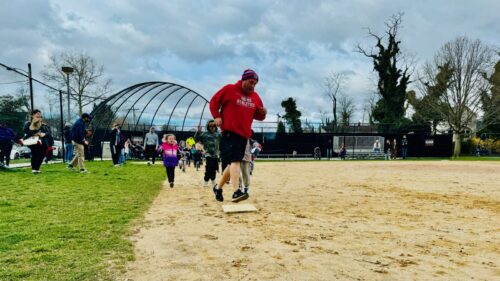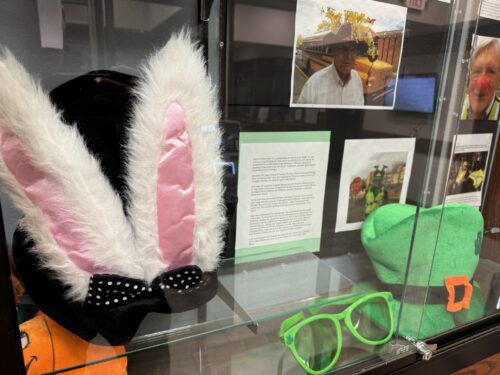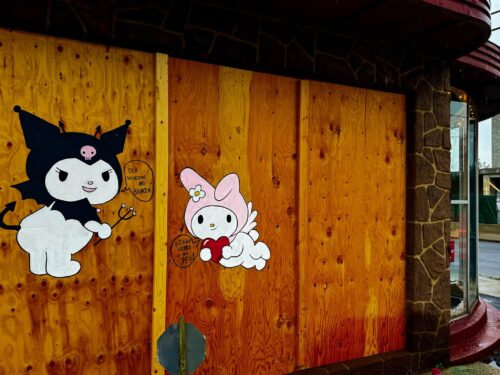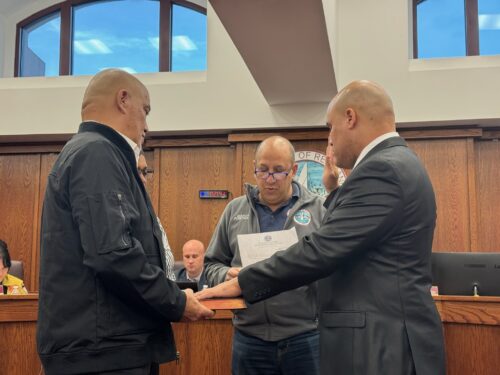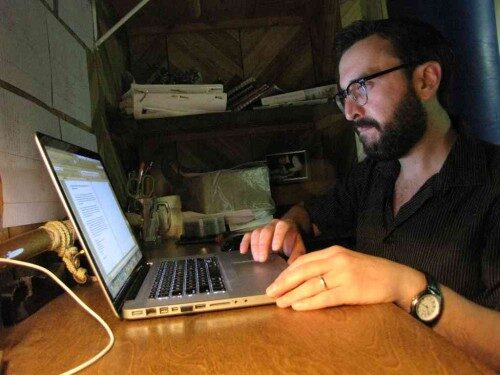 Brandon Zenner at his basement writing table. (Photo by John T. Ward. Click to enlarge)
Brandon Zenner at his basement writing table. (Photo by John T. Ward. Click to enlarge)
By JOHN T. WARD
For 11 sunlight-deprived years, he’s slung drinks and traded banter with customers at the Dublin House in Red Bank. And for a good chunk of that time, he’s spent his free time in a dim, prosaic Red Bank basement, typing away at a windowless desk near a clothes dryer.
But until earlier this year, when he self-published a 294-page novel titled “The Experiment of Dreams,” Brandon Zenner kept his literary ambitions to himself.
“I never told anybody I was a writer,” Zenner told redbankgreen recently. For one thing, “sports is big in a bar. Writing is not,” he said.
Besides, “it’s just easier not to have to talk about it” and instead just do it, he said.
Now that the book is out, though, sunlight, in the form of self-promotion, is the order of the day. Zenner’s novel is available only on Amazon’s Kindle platform, and without the backing of a major publishing house, it’s on the author to do his own public relations to stoke interest.
So Zenner has broken his silence. He’s given away a few copies of his book, and is less reticent about it when asked about his interests away from the bar. He’s even grown “comfortable” talking about it with customers, he said.
“I’m enjoying it,” Zenner said of the reception, both online – where reviews have been “for the most part positive” – and at the Dub. “People enjoy the fact that somebody they knew wrote a book.”
Zenner, 33, grew up in Fair Haven, graduated from R-FH, did a few semesters at Brookdale Community College and started working the taps at the Dub. He also got married, bought a house on Leighton Avenue in Red Bank, and, last year, became a father to a daughter.
His first stabs at writing were in the short-story form, which he found unsuited to his interests. Then he sat down and started a novel, but got distracted by an idea he’d nurtured since he was 16 years old: a thriller about a man whose involvement in a project to “read” and record people’s dreams in intimate detail begins having disturbing dreams of his own that his employers don’t want known.
“I started tinkering with it, and a year and a half later, I was still on it,” he said.
The work he abandoned, meanwhile, was scrapped after several hundred pages and is now going through a second draft, which Zenner said he hopes to publish next year.
Under the Kindle program, authors set their own prices and collect 70 percent of the sales receipts. “The Experiment of Dreams” is priced at $2.95, which Zenner is comfortable with, he said, because it’s so accessible, even if it’s unlikely to yield a big payday.
So what does success look like?
“I never really thought about it,” he said. He’s not so indie-minded that he’d turn down a contract from a publishing house, and in fact hopes to find an agent. But he also wants the price of his work never to exceed $5.
“I’d like to have something everyone would enjoy,” he said.


